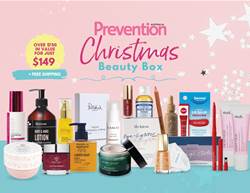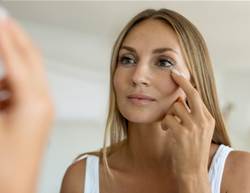As the saying goes, eyes are the windows to the soul. They can reveal your emotions, your health and, yes, your age. That's why it's important to take good care of them! If you've been feeling less than bright-eyed for a while now, try these tips to take care of your peepers.
Protect Your Eyes from the Sun
One of the most important things you can do for your eyes is to protect them from the sun. Overexposure to the sun's UV rays can cause a host of problems, including cataracts, macular degeneration, and even skin cancer around the eyes. So, when you're outside, wear sunglasses with UV protection and a hat with a brim to shade your eyes.
Remove Makeup Carefully
Removing your eye makeup is important to prevent irritation and infection. But be gentle when you do it! Use a gentle, oil-based makeup remover and a soft cotton pad. Avoid rubbing your eyes too hard, as this can damage the delicate skin around them.
Moisturise the Eye Area
The skin around your eyes is very thin and delicate, and it's prone to dryness. To keep it moisturised, use an eye cream or serum that's specifically formulated for the eye area. Look for ingredients like hyaluronic acid and ceramides, which help to hydrate and strengthen the skin.
Get Enough Sleep
Getting enough sleep is important for your overall health, but it's especially important for your eyes. Lack of sleep can cause dark circles, puffiness and even dry eyes. Try to get 7-8 hours of sleep each night, and if you have trouble nodding off, try some relaxation techniques like meditation or a warm bath before bed.
Eat a Healthy Diet
Eating a healthy diet is important for your overall health, but it can also help to keep your eyes healthy. Foods that are high in antioxidants, like leafy greens, berries, and fish, can help to protect your eyes from damage. Also, make sure to drink plenty of water to stay hydrated. Learn more about the foods that support eye health here.
Stay Hydrated
Dehydration can cause dry eyes, so make sure you drink plenty of water throughout the day.
Don't Rub Your Eyes
Rubbing your eyes can cause irritation and even damage the delicate skin around them. If you have an itch or feel like something is in your eye, try blinking a few times or using eye drops to flush it out. If you suffer from allergies, consider taking medication to help ease symptoms, and choose hypo-allergenic eye drops to soother red eyes. If you're constantly suffering from dry, sore eyes, consider seeing a GP to determine if it might be dry eye syndrome: a common condition where the eyes do not produce enough tears, causing a feeling of dryness, itching, burning or even watering eyes.
Rest your eyes
Eye strain is a common problem many of us face: it's caused by prolonged computer use or reading (and the occasional Netflix binge!), and can lead to headaches, dry eyes, and blurred vision. If you've been overdoing the screen time or burning the midnight oil, give your eyes a break by employing the 20-20-20 rule: taking a break every 20 minutes, looking at something at least 20 feet (about 6 metres) away, for at least 20 seconds. This is how you do it:
- Check the clock: Keep an eye on the clock throughout the day. Start at a time that’s easy to track, say 10am rather than 9:47am. Then every 20 minutes you’ll know it’s time for a quick break.
- Pick a focal point: Once the clock strikes, find something to gaze at that’s at least 20 feet (6 metres) away. If you’re facing a wall without a window, this might mean getting up and looking outside for a few moments. The important thing is to focus on something that makes your eyes feel relaxed and is not another screen like a TV or phone. If you struggle to see long-distance, then pick something closer to you that you can actually focus on.
- Look for 20 seconds: Keep your eyes on the view for at least 20 seconds. This doesn’t have to be exact, and you can even extend your break to a minute or so if you feel the need.
Get Regular Eye Exams
Finally, it's important to get regular eye exams to detect any problems early, and keep your eye prescriptions up to date. This is especially important if you have a family history of eye disease or if you're over the age of 40. Don't see it as a chore, either: an eye exam is the perfect opportunity to splurge on some cool new frames!



.jpg&h=90&w=90&c=1&s=1)




.jpg&h=193&w=250&c=1&s=1)

